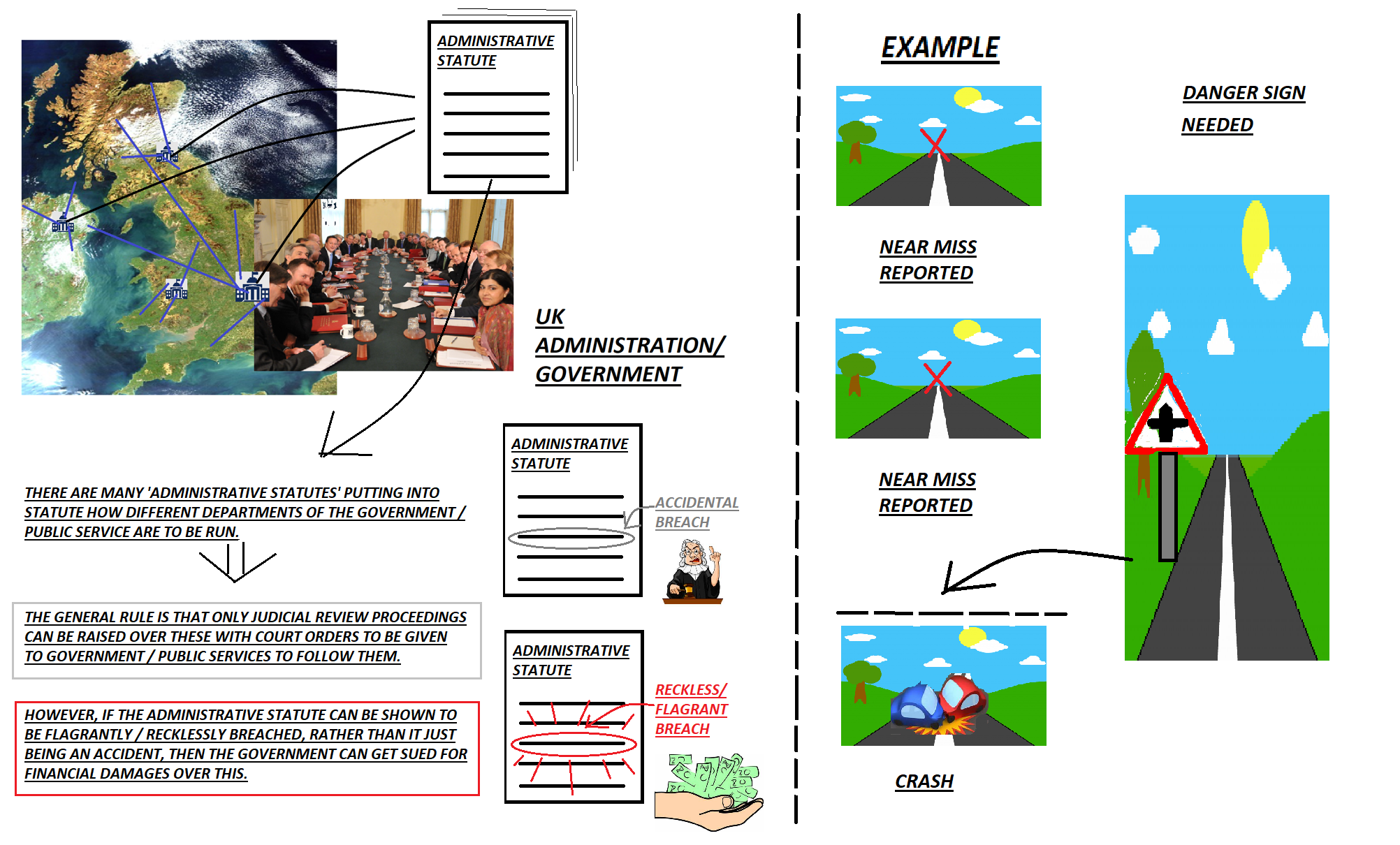Stovin v Wise, 1996, [1996] UKHL 15
Citation:Stovin v Wise, 1996, [1996] UKHL 15
Rule of thumb:If a public authority flagrantly breaches a statute can you get damages? Yes you can, provided it has flagrantly breached a statute. If there is a part of a road which is notorious for being dangerous and this then causes an accident, can the public authority be made liable? Yes, provided it can be shown that this part of the road was notorious for being dangerous.
Background facts:
the basic facts if this case were that Stovin was knocked off of his bike by Wise at a very dangerous junction.
Judgment:
The Court held that Wise was only 70% liable and the Council were 30% liable. The Court held that as this was a notorious bend with multiple serious accidents and extremely lucky near-misses the Council had a duty to put warnings on the road.

Ratio-decidendi:
‘... the creation of a duty of care upon a highway authority, even on grounds of irrationality in failing to exercise a power, would inevitably expose the authority’s budgetary decisions to judicial inquiry. This would distort the priorities of local authorities, which would be bound to try to play safe by increasing their spending on road improvements rather than risk enormous liabilities for personal injury accidents. They will spend less on education or social services... Since Mersey Docks and Harbour Board Trustees v Gibbs (1866) L.R. 1 H.L. 93 it has been clear law that in the absence of express statutory authority, a public body is in principle liable for torts in the same way as a private person. But its statutory powers or duties may restrict its liability. For example, it may be authorised to do something which necessarily involves committing what would otherwise be a tort. In such a case it will not be liable: Allen v Gulf Oil Refining Ltd [1981] AC 1001. Or it may have discretionary powers which enable it to do things to achieve a statutory purpose notwithstanding that they involve a foreseeable risk of damage to others. In such a case, a bona fide exercise of the discretion will not attract liability: . . . “There are sound reasons why omissions require different treatment from positive conduct. It is one thing for the law to say that a person who undertakes some activity shall take reasonable care not to cause damage to others. It is another thing for the law to require that a person who is doing nothing in particular shall take steps to prevent another from suffering harm from the acts of third parties or natural causes..’, Lord Hoffman
Warning: This is not professional legal advice. This is not professional legal education advice. Please obtain professional guidance before embarking on any legal course of action. This is just an interpretation of a Judgment by persons of legal insight & varying levels of legal specialism, experience & expertise. Please read the Judgment yourself and form your own interpretation of it with professional assistance.

